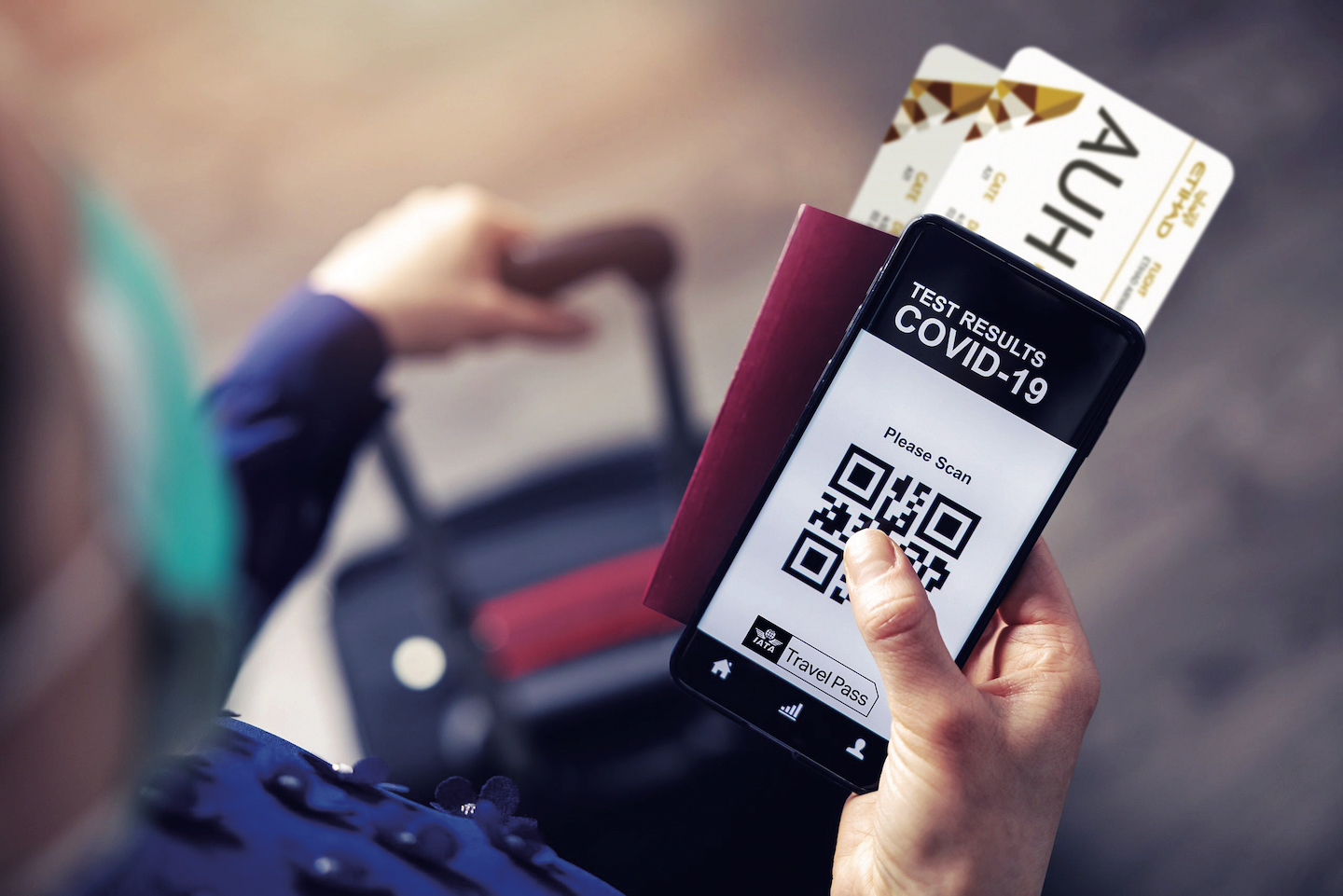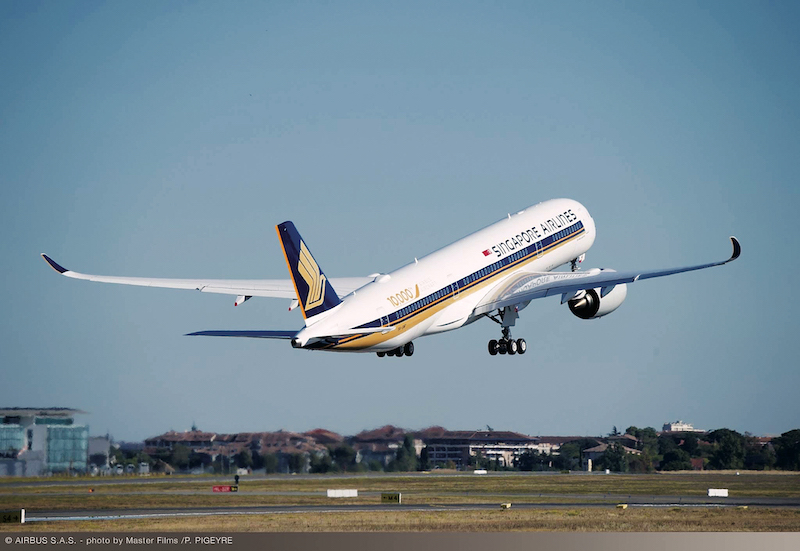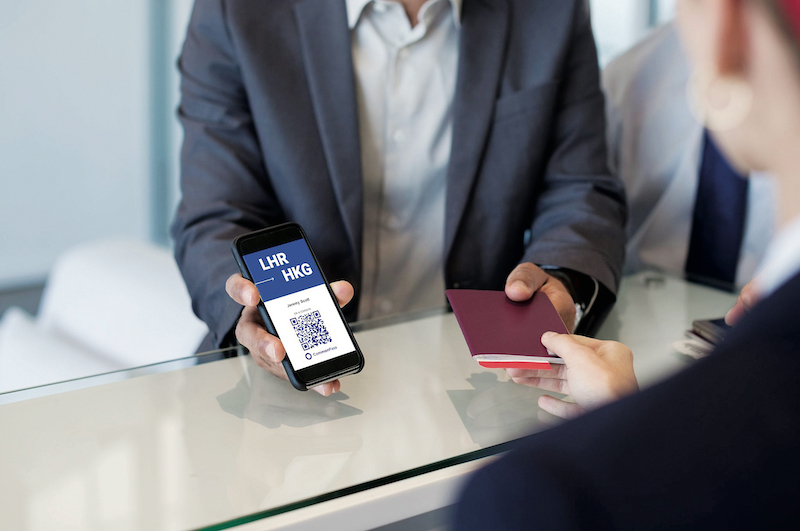
Offered to Etihad Airways, the IATA Travel pass is a mobile app to help passengers easily and securely manage their travel in line with government requirements for COVID-19 tests or vaccine (Photo: Etihad Airways)
If you have resorted to using the transportive abilities of Google Street View or books as a means of escape, you are not alone. The prospect of traipsing under a canopy of cherry blossoms in Japan’s Mount Yoshino or feeling the sand between your toes on a beach in Maldives may sound like a pipe dream, but with vaccinations ramping up, nurturing our travel plans once again does not seem too futile. It is uncertain how much more the travel landscape will change, but one answer has come into focus — odds are you will be booking a Covid-19 test along with your flight tickets and proof will be needed that you have taken it.
“Vaccine passport”, along with terms like “sanitagging” and “safecation”, has entered the lexicon associated with modern travel. The documentation, which you can retrieve from your mobile phone as an app or part of your digital wallet, shows that the bearer has been vaccinated against Covid-19 or tested negative for the virus. The idea is to unfreeze economies from costly lockdowns, let families reunite and allow the world to return to a degree of normalcy. However, is there a case for issuing proof of immunity to people who have been inoculated?
Several countries have already set the wheels in motion. Israel became the first nation to implement the concept in late February with its Green Badge system, which allows fully vaccinated Israelis to gain access to activities such as sports, concerts and outdoor dining — as long as they present their vaccination certificate with a QR code.
Earlier this month, the EU proposed a certificate called Digital Green Pass that not only enables Europeans to move freely but also assists tourism-dependent nations such as Greece and Cyprus to claw back the precipitous drop in visitor numbers come summer.
Airlines also want their wings clipped no further, turning to technology by collaborating with the providers of digital health apps — such as CommonPass, a partnership between non-profit organisation Common Project and the World Economic Forum — that will open up air corridors and restart international travel.
Singapore Airlines will be the first carrier to test the International Air Transport Association (IATA) Travel Pass, an iOS app (for now) that allows travellers to book a pre-departure Covid-19 test using their digital ID and flight information. Malaysia Airlines, Air New Zealand and Qatar Airways are keen to follow suit.
img_9923.jpg

Vaccine passports will turn the tables for countries that have in the past year slapped outright bans on inbound travellers or returnees as they eliminate the need for onerous testing or quarantine upon arrival. While advocates vote in favour of these vaguely defined certificates to curb the spread of Covid-19, at least in countries with easy access to vaccines, what about those who are unable to prove their identities because they lack passports or identification cards? We only need to take a gander at our local neighbourhood — the old folks, some of whom are also smartphone-deprived, are already struggling to check in without the MySejahtera app.
The World Health Organisation (WHO) and leading immunologists are also wary of vaccine passports as useful tools to underpin post-pandemic recovery, especially when it is too soon to determine whether the vaccines that were rushed into production will confer lasting immunity. A digital health certification also raises thorny issues about legal rights, data privacy and social discrimination as sensitive personal health information could create a tiered and polarised society of the vaccinated and unvaccinated. Residents in the UK, who fear proof of vaccination could tilt the odds of securing employment, are already distressed by a “no jab, no job” threat.
Favourable treatments for the immunised will certainly hit a nerve, and one can already imagine the uncomfortable scenario in the future: The professional class will be allowed to saunter into first class with their vaccine passport while members of the working class or minorities from countries without access to shots will be unfairly kept out.
The great irony of vaccine passports is that although they are aimed at the greater good, they are merely creating pockets of a safe environment while ignoring the greater ethical concerns they create. At their worst, vaccine passports would stigmatise and leave behind those who cannot access them.
commonpass_enables_safer_air_travel_by_showing_a_verified_covid-19_status_for_a_traveler.jpg

In theory, releasing our immunisation records — which have long been used to prove that we have been vaccinated against yellow fever, polio, meningitis, cholera or rubella before travelling — could help contain the pandemic and reduce infections, but only if it is done via a streamlined travel credentialing process. China, for example, has envisaged its own version of a vaccine passport as a digital product, but it is also available in paper form. So far, so convenient. But what if a plane lands in an airport and, say, 100 passengers have a travel pass and 50 of them possess a written government document? How will the immigration department process all of the passengers in a standard way?
Before vaccine passport creators can laud the upsides of their service, they will need to overcome the insurmountable challenge of privacy protection, ensuring that our personal data does not fall into the wrong hands. Our personal data is still susceptible to hacking or misuse even though many developers claim they have secured the data using blockchain technology, which ensures the data is not stored in one place.
The global passport system took 50 years to develop, and more than a decade was needed for all parties to just agree on adding fingerprint or facial biometrics. It will take time to establish a one-size-fits-all international system of health documentation before we can truly fly again. Until then, the joy of armchair travel continues.
The article first appeared on Mar 22, 2021 in The Edge Malaysia.


